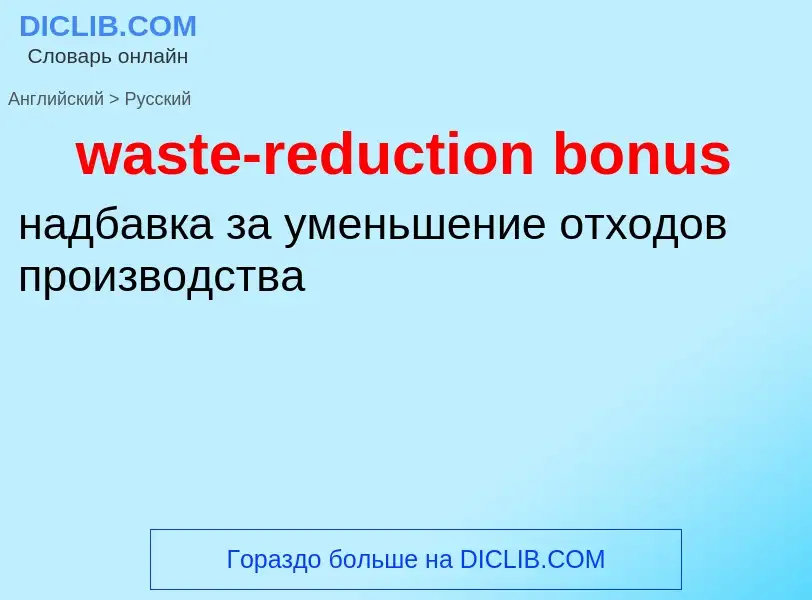Traducción y análisis de palabras por inteligencia artificial ChatGPT
En esta página puede obtener un análisis detallado de una palabra o frase, producido utilizando la mejor tecnología de inteligencia artificial hasta la fecha:
- cómo se usa la palabra
- frecuencia de uso
- se utiliza con más frecuencia en el habla oral o escrita
- opciones de traducción
- ejemplos de uso (varias frases con traducción)
- etimología
waste-reduction bonus - traducción al ruso
медицина
закрытое вправление
закрытая репозиция
Definición
Wikipedia
Waste minimisation is a set of processes and practices intended to reduce the amount of waste produced. By reducing or eliminating the generation of harmful and persistent wastes, waste minimisation supports efforts to promote a more sustainable society. Waste minimisation involves redesigning products and processes and/or changing societal patterns of consumption and production.
The most environmentally resourceful, economically efficient, and cost effective way to manage waste often is to not have to address the problem in the first place. Managers see waste minimisation as a primary focus for most waste management strategies. Proper waste treatment and disposal can require a significant amount of time and resources; therefore, the benefits of waste minimisation can be considerable if carried out in an effective, safe and sustainable manner.
Traditional waste management focuses on processing waste after it is created, concentrating on re-use, recycling, and waste-to-energy conversion. Waste minimisation involves efforts to avoid creating the waste during manufacturing. To effectively implement waste minimisation the manager requires knowledge of the production process, cradle-to-grave analysis (the tracking of materials from their extraction to their return to earth) and details of the composition of the waste.
The main sources of waste vary from country to country. In the UK, most waste comes from the construction and demolition of buildings, followed by mining and quarrying, industry and commerce. Household waste constitutes a relatively small proportion of all waste. Industrial waste is often tied to requirements in the supply chain. For example, a company handling a product may insist that it should be shipped using particular packing because it fits downstream needs.


